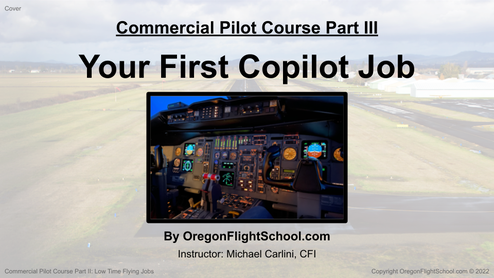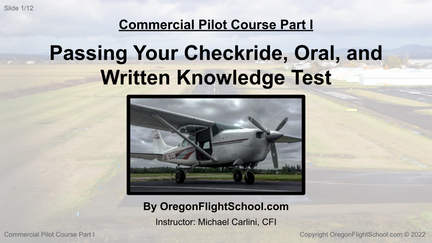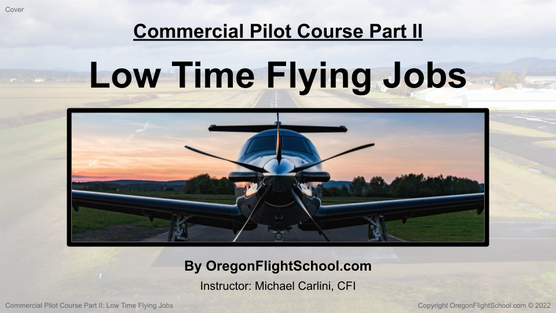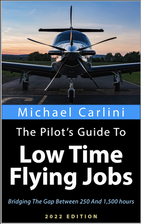Your First Copilot Job
You’ve just been offered your first job as a co-pilot in a jet.
Your journey in aviation thus far may have included towing banners, flight instructing, or dropping skydivers. Perhaps you recently passed your commercial pilot checkride and are fortunate enough to know someone who was looking for a copilot in their Cessna Citation. Whatever the case, landing this job is a major step towards your dream.
This will be your first time flying a jet; your first time flying as a required part of a crew; your first time in the flight levels; your first “grown-up” flying job. You’ve spent hundreds of hours studying, training, and time-building to get here. You feel a strong sense of accomplishment and excitement for what is to come.
And you have absolutely no idea where to begin.
So many questions, so many unknowns. You aren’t scared, but you don't know what to expect - nor do you know what is expected of you. You don’t want to make a fool of yourself on the job, but you don’t know where to find the answers that you seek. Like every other aviation training event that you have undertaken, you want to show up prepared and ready. You are a professional aviator now, and you want to act like it.
Due to the limited resources of most small flight departments, it is likely that no one will sit you down and explain exactly what you will be doing as a copilot. For the most part, you will be expected to learn everything on the job, by observation. No one will tell you how extensively you should study, nor which sections of the large flight manuals are most pertinent to your job. Copilot training for most part 91 corporate flight departments will cover the bare minimum FAA requirements of flying the airplane, and if you fly infrequently, you may not have the opportunity to become truly proficient.
This course was created to shed light on what the job is all about - to provide some direction and to help relieve feelings of nervousness and anxiety to the first-time part 91 copilot. There is so much to know that is specific to this kind of flying, and the role of the copilot in particular.
The course is currently under development and will be available soon! Sign up at the bottom of the page to be notified when this course becomes available.
Your journey in aviation thus far may have included towing banners, flight instructing, or dropping skydivers. Perhaps you recently passed your commercial pilot checkride and are fortunate enough to know someone who was looking for a copilot in their Cessna Citation. Whatever the case, landing this job is a major step towards your dream.
This will be your first time flying a jet; your first time flying as a required part of a crew; your first time in the flight levels; your first “grown-up” flying job. You’ve spent hundreds of hours studying, training, and time-building to get here. You feel a strong sense of accomplishment and excitement for what is to come.
And you have absolutely no idea where to begin.
So many questions, so many unknowns. You aren’t scared, but you don't know what to expect - nor do you know what is expected of you. You don’t want to make a fool of yourself on the job, but you don’t know where to find the answers that you seek. Like every other aviation training event that you have undertaken, you want to show up prepared and ready. You are a professional aviator now, and you want to act like it.
Due to the limited resources of most small flight departments, it is likely that no one will sit you down and explain exactly what you will be doing as a copilot. For the most part, you will be expected to learn everything on the job, by observation. No one will tell you how extensively you should study, nor which sections of the large flight manuals are most pertinent to your job. Copilot training for most part 91 corporate flight departments will cover the bare minimum FAA requirements of flying the airplane, and if you fly infrequently, you may not have the opportunity to become truly proficient.
This course was created to shed light on what the job is all about - to provide some direction and to help relieve feelings of nervousness and anxiety to the first-time part 91 copilot. There is so much to know that is specific to this kind of flying, and the role of the copilot in particular.
The course is currently under development and will be available soon! Sign up at the bottom of the page to be notified when this course becomes available.
Commercial Pilot Course Series
The reality is that the FAA's commercial pilot training requirements and commercial training programs do not effectively prepare pilots to exercise the privileges of their commercial pilot certificate. Upon completion of your commercial pilot checkride, you will likely find yourself grossly unprepared and unequipped to exercise your privileges as a commercial pilot. Why?
- Commercial pilot training fails to emphasize or remedy the biggest challenges in flying for hire
- Commercial pilot training fails to provide practical advice for finding a job flying airplanes
- Commercial pilot training fails to provide practical knowledge on flying larger, more complex aircraft
- Commercial pilot training fails to provide knowledge or experience flying as a crew
- Commercial pilot training requires flying maneuvers that will never be used in real-life
- Commercial pilot training fails to cover the personal, social, and mental challenges of flying professionally
- Commercial pilot training fails to explain how to effectively study for type ratings
In an effort to fill in the massive holes left in commercial pilot flight training, Oregon Flight School has developed a 3-part commercial pilot course series that will cover the aforementioned shortcomings, as well as many others. This course will be be useful to the commercial pilot applicant as well as those of you who already hold a commercial pilot certificate because it is NOT a course designed to teach to any test - it is a course designed for real-life Commercial Pilot flying.
Previous courses in the series include:
Previous courses in the series include:
|
Commercial Pilot Course Part I: Passing Your Checkride, Oral, and Written Knowledge Test. This FREE short course covers how to most effectively pass the commercial pilot checkride, oral, and FAA written knowledge test.
|
|
Commercial Pilot Course Part II: Low Time Flying Jobs. This course covers all aspects of bridging the gap between 250 and 1,500 hours. Enroll today!
|
|
The Pilot's Guide To Low Time Flying Jobs: Bridging The Gap Between 250 and 1,500 Hours. This is the hardcover and ebook version of Commercial Pilot Course Part II: Low Time Flying Jobs
|




